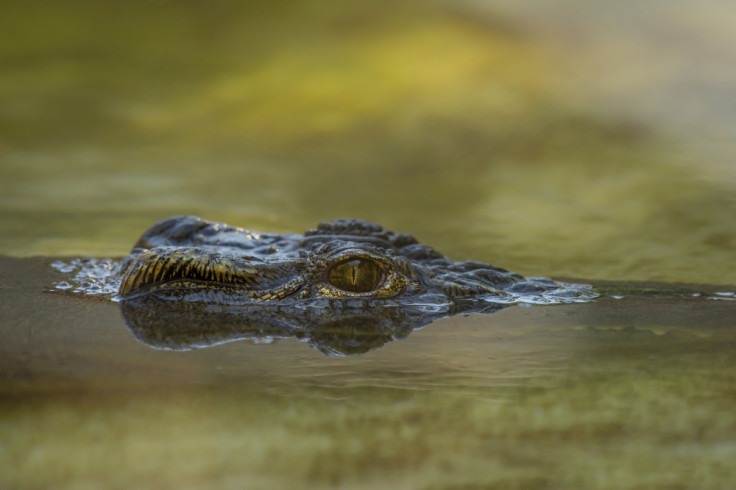Fury In Africa As Tourists Block Wildebeest Migration, Sending Some Back Into Crocodile-Infested Waters
A viral video showing safari vehicles blocking wildebeest crossings has ignited global concern over irresponsible tourism in Kenya's Maasai Mara.

Kenya is facing global criticism after tourists were caught obstructing the Great Migration in the Maasai Mara, forcing panicked wildebeests back into the Mara River—where crocodiles were lying in wait.
The recent incident, which unfolded near Purungat Bridge, has triggered a wave of public and conservationist anger, with calls for urgent regulatory changes to protect one of the world's most iconic wildlife spectacles.
Footage circulating widely on social media shows tourists stepping out of safari vehicles and clustering along the riverbanks, leaving the animals barely a metre to pass.
Tourists Caught on Camera Blocking River Crossings
The recent footage shared widely on social media shows tourists jumping out of safari vehicles and crowding the banks of the Mara River, leaving barely a metre of space for the wildebeests to pass. In some instances, the animals were seen turning back into the water, where crocodiles lurked beneath the surface.
@sautitvke A shocking scene unfolded at the Mara as tourists abandoned safari vehicles to block wildebeests at the riverbank, forcing the frightened animals back into the raging waters. Conservationists warn of the grave dangers of reckless human interference in one of nature's greatest spectacles.
♬ original sound - Sauti TV
The incident occurred near the Purungat Gate, a designated migration crossing in the Maasai Mara National Reserve, which is crucial to the annual wildebeest journey from Tanzania's Serengeti into Kenya. The crossing is often hailed as the highlight of the Great Migration, a phenomenon described by many as the 'eighth wonder of the world'.
The video, posted by wildlife advocacy group Cheetah Guardians, sparked immediate backlash from conservationists and the public alike.
Government Responds with Stricter Measures
Kenya's Ministry of Tourism and Wildlife swiftly condemned the actions, announcing a series of measures aimed at curbing such disruptions.
Cabinet Secretary Rebecca Miano stated, 'It is imperative that all stakeholders—government, tour operators and visitors—uphold the highest standards of conduct to protect both wildlife and visitor safety.'
Among the new regulations are:
- Mandatory vehicle stays during wildlife viewing, except in designated areas
- Increased ranger presence at sensitive migration points
- Legal and disciplinary action against tour operators who flout park rules
- Enhanced signage and visitor education campaigns
Miano added: 'We must act decisively to preserve the Maasai Mara's integrity, uphold visitor safety and demonstrate Kenya's unwavering commitment to conservation. Together, we can ensure the Maasai Mara wildebeest migration remains not only one of the world's greatest natural spectacles but also a symbol of Kenya's leadership in conservation.'
On Wednesday, Stephen Minus, chief warden of the Maasai Mara National Reserve, released a statement strongly condemning the recent incident:
'As chief warden, I want to make it clear that such behaviour is not condoned within the Maasai Mara National Reserve. The safety of our visitors and the well-being of our wildlife are of utmost priority, and we expect the highest standards of conduct from guides and guests alike.'
Minus also noted that the location featured in the video, Purungat Bridge, is a designated rest and viewing area within the reserve, intended to offer safe observation without disturbing the natural environment.
Conservation vs Commercialisation
The incident has reignited debate over the balance between tourism and conservation in East Africa. Critics argue that over-tourism and luxury developments are threatening the ecological integrity of the region.
A recent lawsuit filed against the Ritz-Carlton's new $3,500-a-night safari lodge alleges that the property obstructs a vital migration corridor between the Maasai Mara and Tanzania's Serengeti.
Meitamei Olol Dapash, director of the Institute for Maasai Education, Research and Conservation, warned in an interview with Reuters, 'Without the county government regulating the tourist behaviours, the tourist activities, we saw the habitat, the environment degraded so badly.'
A Call for Responsible Tourism
The Maasai Mara migration attracts thousands of visitors each year, making a significant contribution to Kenya's economy. However, experts stress that this must not come at the expense of wildlife welfare.
Tourism Regulatory Authority Director-General Nobert Tallam echoed this sentiment, stating, 'We want to remind all tour guides and operators not to engage in unprofessional conduct such as blocking wild animals. We are going to take strong action, including penalties and licence revocation, against those found culpable.'
As Kenya addresses the aftermath of this incident, a clear message resonates from conservationists and officials alike: protecting wildlife must always take precedence over spectacle. Only through ethical tourism can Kenya preserve the wonders that draw the world to its savannahs year after year.
© Copyright IBTimes 2025. All rights reserved.





















